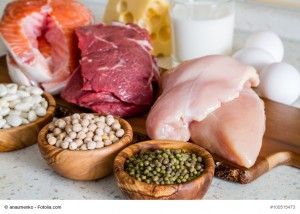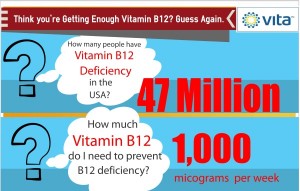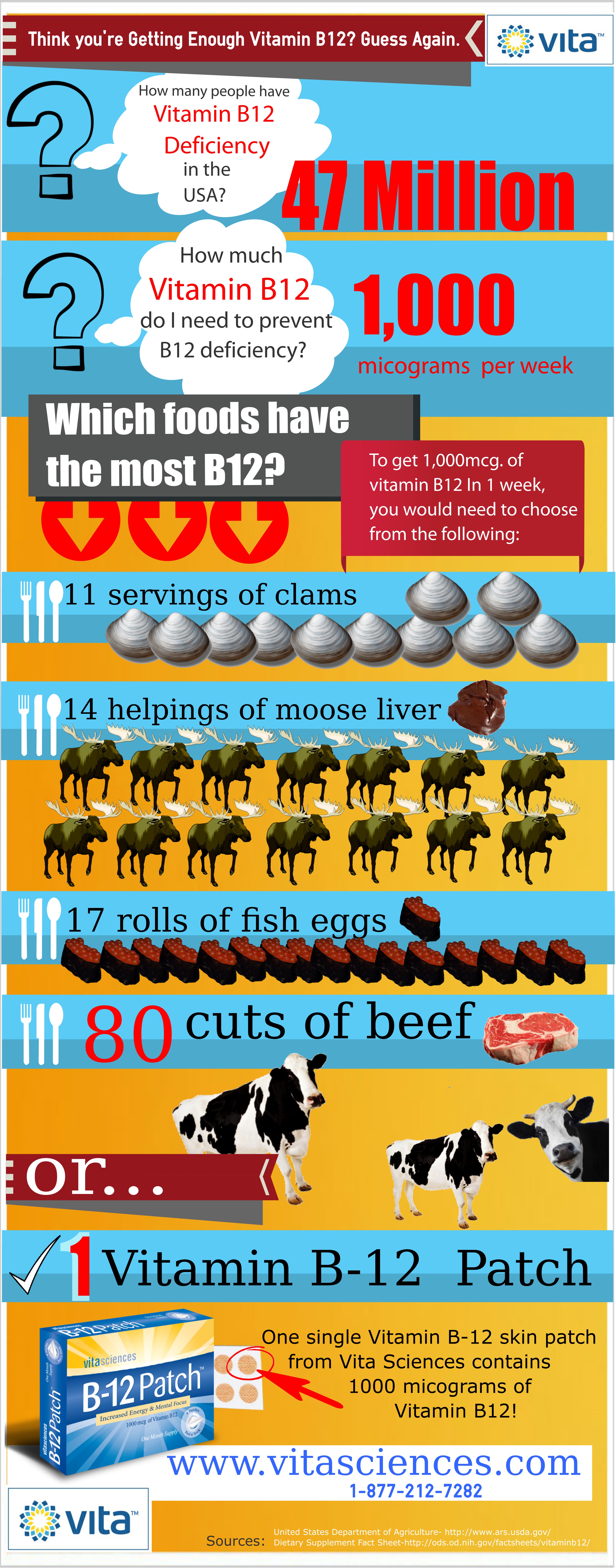Want to boost energy, prevent fatigue, and restore mental alertness? In addition to taking daily vitamins and minerals, and preventing vitamin B12 deficiency, it’s important to make sure you’re eating the right foods for maximum energy.
Boost energy with these foods
For more energy throughout the day, you need to fill up on foods with high-octane, complex carbohydrates, lean proteins, and soluble fibers for normal digestion.
Look for energizing foods that provide antioxidants, minerals, and plenty of B vitamins for stamina, neurological integrity, and healthy metabolism.
Below is a list of the best healthy foods that provide the most energy.
- Apples– healthy fiber, fructose, vitamin C, antioxidants, and boron for alertness
- Bananas– B-vitamins, calcium, iron, magnesium, healthy fiber, and potassium
- Red bell peppers– vitamin C, healthy fiber, phytochemical lycopene, and vitamin B6.
- Carrots– healthy fiber, Beta-Carotene
- Celery– water, fiber, vitamin C, B-vitamins, potassium and sodium
- Tomatoes– vitamin C
- Sweet potatoes– vitamin A, vitamin C
- Pumpkin– potassium, fiber, vitamin A
- Spinach– iron, vitamin C, vitamin A, calcium, and folate
- Cantaloupe– B-vitamins, potassium, fructose, and water
- Watermelon– B-vitamins, potassium, fructose, and water
- Pineapple– Vitamin C and bromelain
- Mango– Vitamin C
- Sea vegetables– calcium, iron, magnesium, and potassium
- Dried figs– iron, potassium
- Raisins– iron, potassium
- Strawberries– vitamin C, soluble fiber, antioxidants
- Blueberries– antioxidants
- Sauerkraut– probiotic balance
- Tossed leafy green salad– iron, vitamin C, vitamin A, calcium, and folate
- Kidney beans– soluble fiber, vitamin B, iron, magnesium, potassium, zinc and calcium
- Hummus– protein, soluble fiber, iron, vitamin C, vitamin B, magnesium, potassium, zinc, calcium and folate.
- Soy– soluble fiber, vitamin B, iron, magnesium, potassium, zinc and calcium
- Lean meats– vitamin B12, tyrosine
- Lentils– soluble fiber, vitamin B, iron, magnesium, potassium, zinc and calcium
- Crab– vitamin B12, lean protein
- Salmon– vitamin B12, low-fat protein, omega-3 fatty acids, and Coenzyme Q10
- Low-fat yogurt– protein, calcium, and vitamin D
- Omelet– healthy protein, vitamin B12, tyrosine, iron, and yolks contain choline for mental energy
- Iron-fortified cereals– iron, healthy fiber, B-vitamins, and magnesium
- Brown rice– healthy filling fiber, manganese , magnesium, B vitamins
- Quinoa– soluble fiber, complete protein, vitamin B, iron, magnesium, potassium, zinc and calcium
- Oatmeal– B vitamins, soluble fiber, and boosts energy
- Dark chocolate– flavanols, iron and magnesium
- Pumpkin seeds– protein, tyrosine, iron, vitamin K, magnesium, calcium, and Coenzyme Q10
- Nuts– selenium, B- vitamins, copper, vitamin E, omega-3 fatty acids, tyrosine, magnesium, manganese, iron, and Coenzyme Q10
- Lemon-mint water– vitamin C, prevents dehydration and fatigue
- Coconut water– electrolytes to prevent dehydration and fatigue
- Green smoothie– combined energy-boosting nutrients of yogurt, leafy green vegetables, apples, and bananas
- Tea– caffeine, L-theanine
How’s your B12?
Sometimes, daily fatigue, dizziness, and muscle pain is a result of low vitamin levels, particularly in energy-boosting vitamin B12. A blood test will tell you if you need to increase your vitamin B12 intake.
Vitamin B12 can be found in most protein foods, such as beef, chicken, fish, eggs, and dairy products. If you have vitamin B12 deficiency, then you may require extra B12 outside of the food pyramid.
An easy way to maintain healthy vitamin B12 levels is to use vitamin B12 supplements that replenish cobalamin in the blood supply quickly and efficiently.
Here are some good ones to try.
Your turn!
What foods do you think provide the most energy?
What nutritional supplements do you take for stamina, memory, and mental focus?
Do you have any questions or suggestions? Please leave your comments below.


